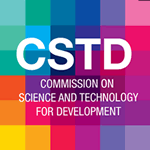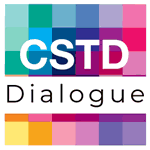Organized by UN Office for Disaster Risk Reduction (UNDRR), Integrated Research on Disaster Risk (IRDR) and International Science Council (ISC)
The Side event will introduce the Sendai Framework and its connections to the SDGs and other agreements and the work science partners, Ministries of Science, scientific advisors and others must do to enhance understanding of risks for resilient and sustainable communities.
CSTD theme for 2019:
- The impact of rapid technological change on sustainable development.
- The role of science, technology and innovation (STI) in building resilient communities, including through the contribution of citizen science.
The Sendai Framework for Disaster Risk Reduction provides a major shift in focus from, managing disasters, to managing risks. Reducing disaster risk requires to address the multiple, complex and interrelated processes of risk creation, vulnerability as well as strengthening resilience through stronger engagement across sectors, and communities.
The scientific and technology community have been mobilizing to contribute to the implementation of the Sendai Framework, in particular through the development of S&T roadmap recently revised to better address the important linkages with the 2030 Agenda, the Paris Agreement and the New Urban Agenda.
This session will discuss the role of ‘engaged science’ and of technologies in helping communities to prepare and recover from the effects of a hazard but also to implement and define actions that reduce disaster risk and promote sustainable development. Engaged science encompass transdisciplinary approaches that bring academics and non-academics together in a process of knowledge co-production, mutual learning and problem-solving, the movement of open science making data and research results more accessible, and of citizen science and promoting public participation in data collection and analysis.
Objectives of the side event:
- To discuss the role of science and technology for disaster risk reduction and its implications for sustainable development
- To exemplify the strong link of disaster risk reduction with the CSTD 2019 priority themes: inclusive and empowered communities through rapid technological changes and citizen science
Panelists:
- E. América Santos Riveras, Vice-Minister for Science and technology, Cuba
- E. Professor Nkandu Luo, Minister of Higher Education of Zambia
- Dr Flavia Schlegel, Special Envoy for Science and Global Policy, International Science Council
- David Johnston, International Center of Excellence on Community Resilience, New Zealand
- Anaïs Couasnon, PhD researcher, the Department of Water and Climate Risk of the Institute for Environmental Studies (IVM), Vrije Universiteit, Netherlands
Chair: John Handmer, IRDR



